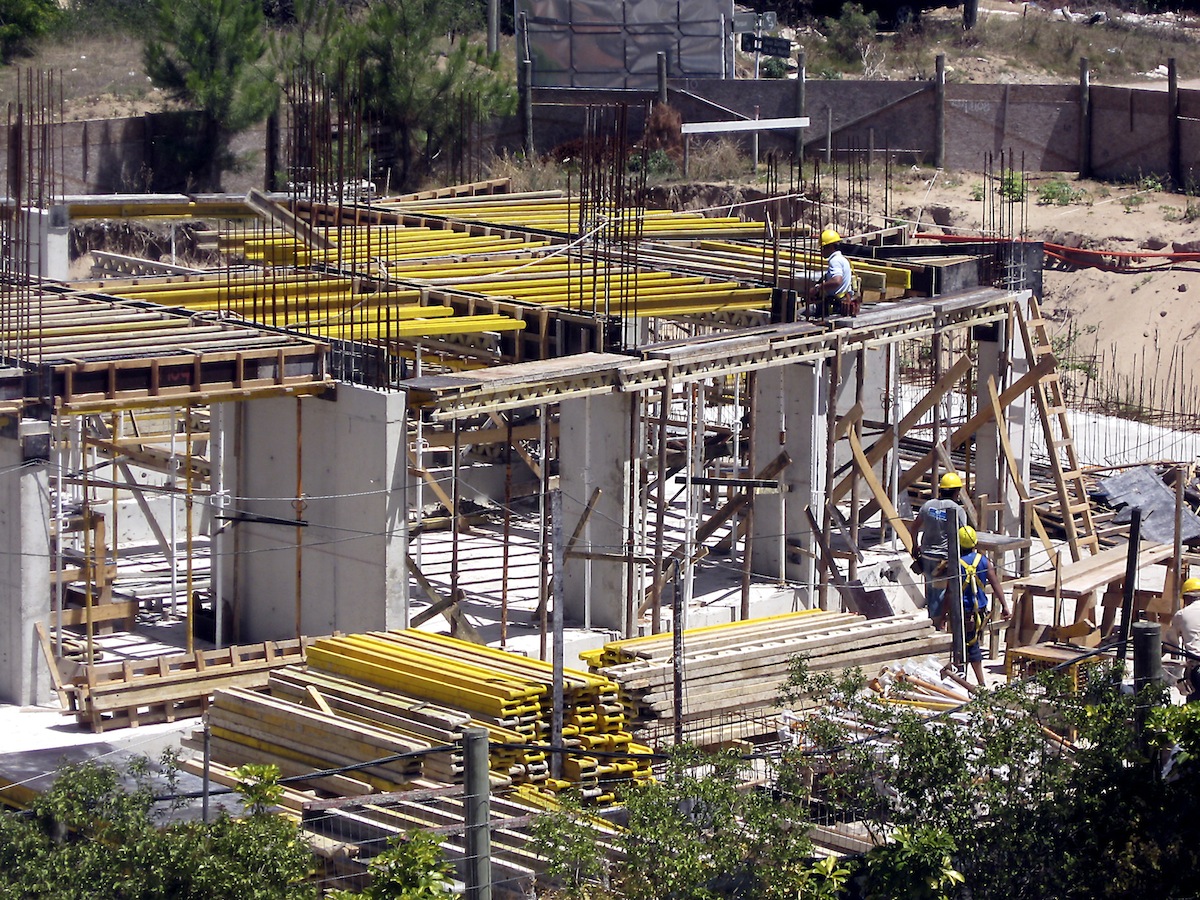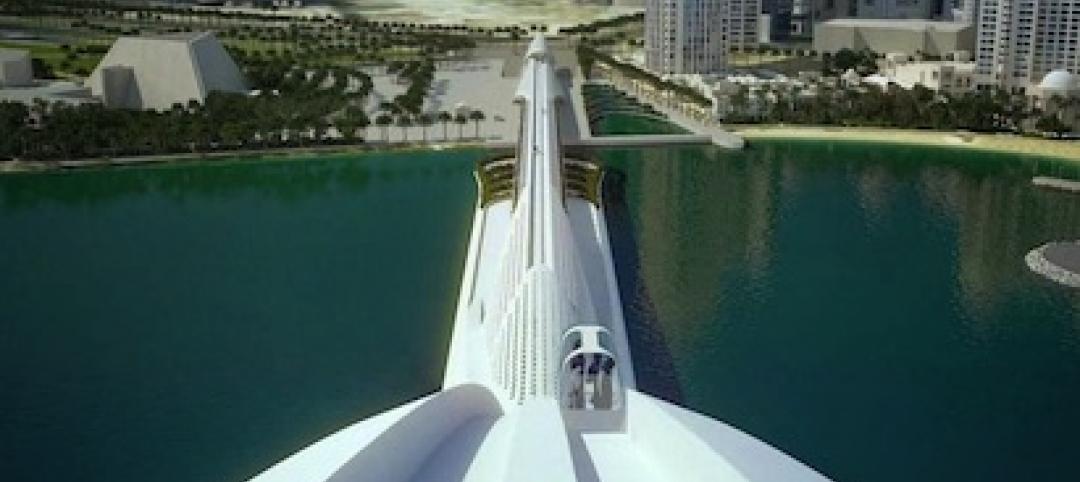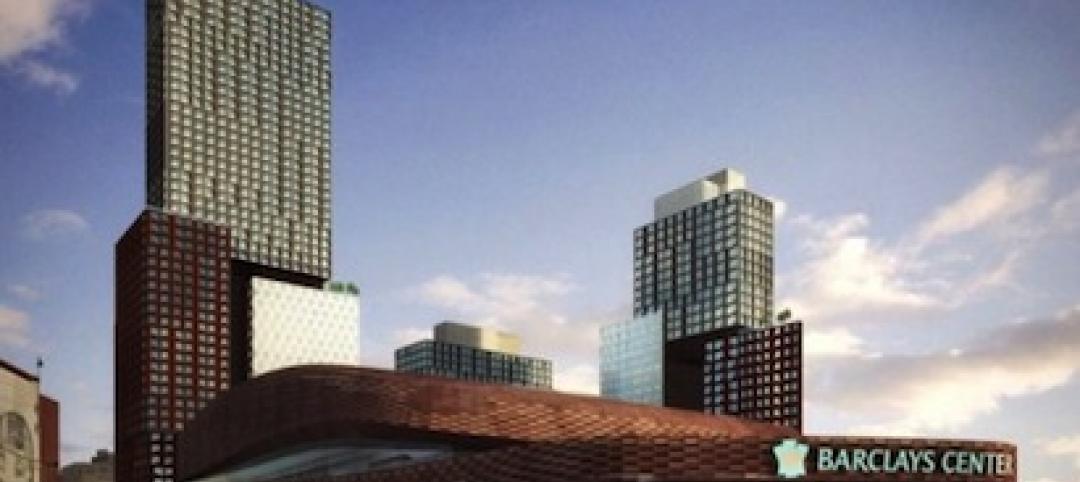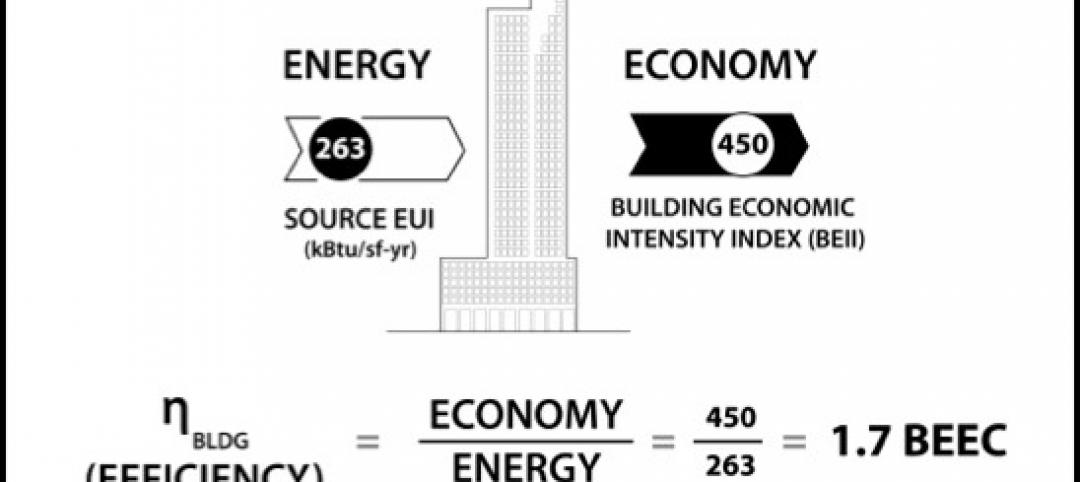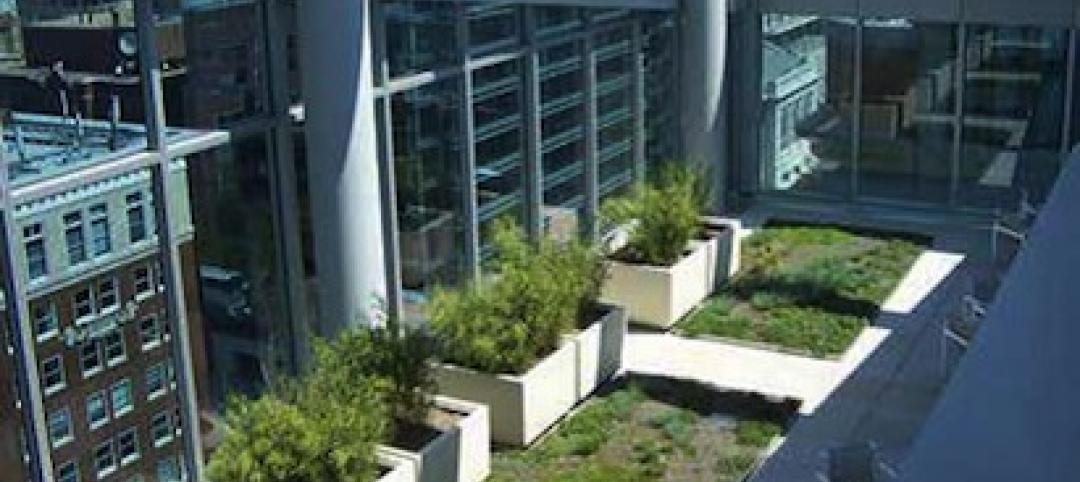Leopardo Companies, Inc. released its 2015 Construction Economics Report and Outlook, an essential guide to help business leaders, healthcare administrators, and government decision-makers understand the factors that impact construction costs.
This year’s report shows that different factors have opposing effects on construction costs. Low oil prices greatly reduce the cost of construction, and some material costs have come down over the past year.
But these factors reducing cost are more than offset by the strong increase in labor costs, brought on by a shortage of skilled workers as more than 25% of Illinois construction workers left the industry over the past five years. The overall effect is that construction costs are rising as development volume increases in Chicago and across Illinois.
“Organizations that are considering new construction and renovation projects need to understand the factors in the economy and in the construction industry that may affect the timing and cost of their projects,” said Leopardo President Rick Mattioda. “Our annual Construction Economics Report and Outlook offers a wealth of useful information to help people make informed decisions when building.”
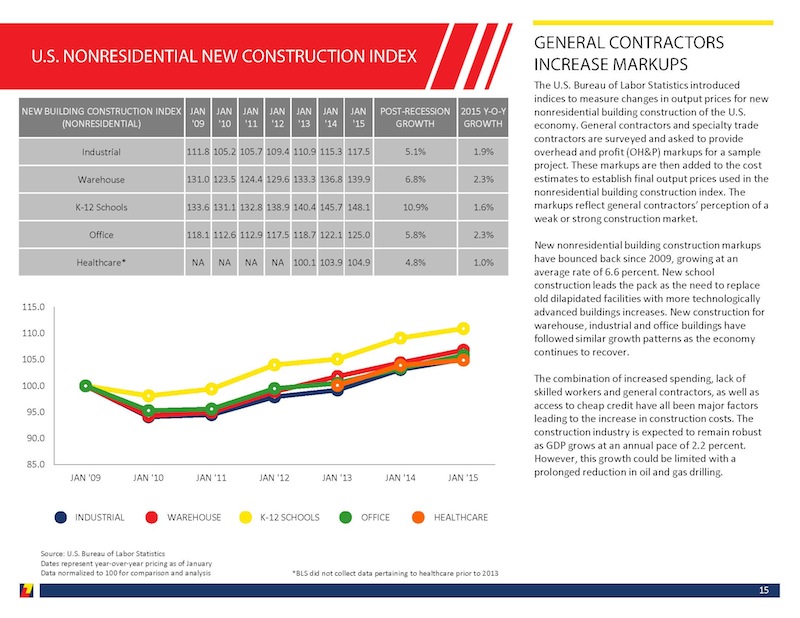
To create the report, Leopardo analyzed economic and construction industry data from universally respected sources, and utilized that data as well as the experience of the firm’s principals to forecast the direction of construction costs over the next year.
The report provides current and recent costs relating to:
• Construction materials, including steel, wood, concrete, asphalt, aluminum, copper and paint
• Oil, electricity and other energy sources
• Union and general wage increases for construction workers and specialty contractors
• Average markup of contractor and subcontractor bids
Also included in the report is economic data such as the Producer Price Index, the Consumer Price Index, employment projections for Illinois, and construction spending by industry.
The report concludes with a snapshot of construction volume and trends by property type, including office, warehouse, hotel, multifamily residential, healthcare, educational, entertainment, and public-sector properties.
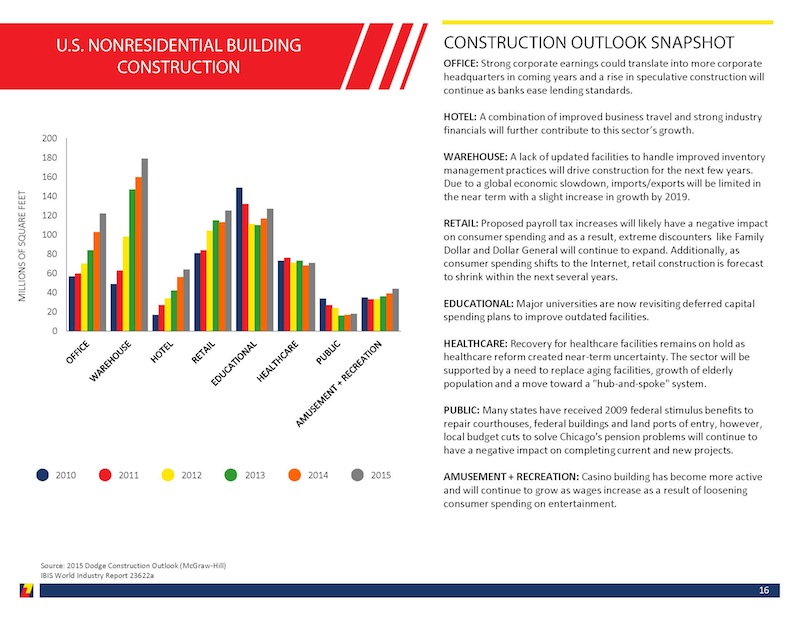
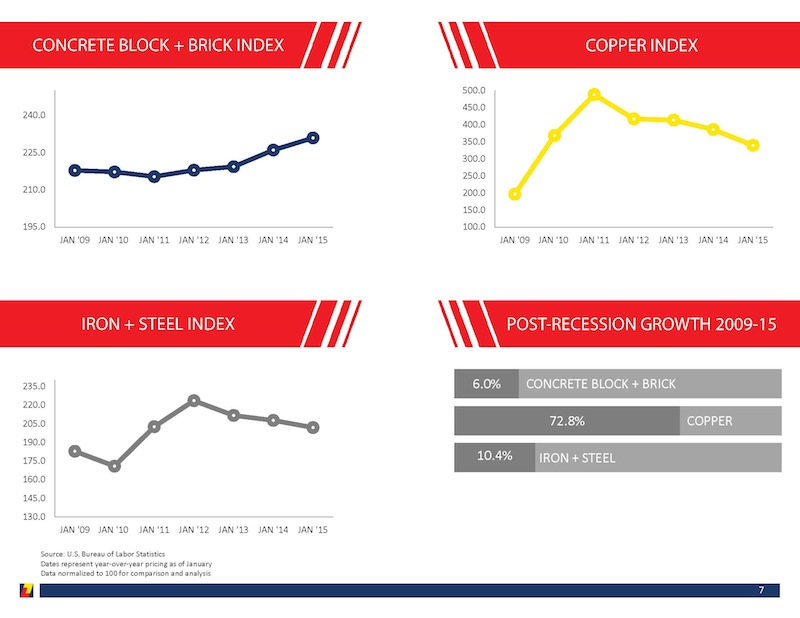
Related Stories
| Dec 24, 2013
First Look: Calatrava's Sharq Crossing in Doha, Qatar [video]
The government of Qatar has released details of Sharq Crossing, a massive infrastructure project designed by Spanish architect Santiago Calatrava.
| Dec 23, 2013
MBI commends start of module setting at B2, world's tallest modular building
The first modules have been set at B2 residential tower at Atlantic Yards in New York, set to become the tallest modular building in the world.
| Dec 23, 2013
First Look: KPF's dual-tower design for Ziraat Bank in Istanbul
Kohn Pedersen Fox Associates (KPF) is designing a new headquarters for Turkey’s largest and oldest financial institution, Ziraat Bank, in a modern, suburban district of Istanbul.
| Dec 20, 2013
Top healthcare sector trends for 2014 (and beyond)
Despite the lack of clarity regarding many elements of healthcare reform, there are several core tenets that will likely continue to drive transition within the healthcare industry.
| Dec 20, 2013
Must see for the holidays: Architects re-create iconic structures using gingerbread
Gensler, PBK, Page Sutherland Page, and Kirksey were among the firms to compete in the 5th Annual Gingerbread Build-Off.
| Dec 20, 2013
Can energy hogs still be considered efficient buildings? Yes, say engineers at Buro Happold
A new tool from the engineering firm Buro Happold takes into account both energy and economic performance of buildings for a true measure of efficiency.
| Dec 20, 2013
Ten spectacular contemporary churches [slideshow]
German building-information provider Emporis compiles a photographic tour of inspirational spaces.
| Dec 19, 2013
NRDC report relates green infrastructure investments to commercial property value [Infographic]
The Natural Resources Defense Council has released The Green Edge: How Commercial Property Investment in Green Infrastructure Creates Value -- a first-ever illustrative and well-documented report that helps demonstrate the value of green infrastructure. It draws from available published material to capture the multitude of tangible, monetizable non-water quality and water quality benefits that green infrastructure investments (trees, rain gardens, and porous pavement, rainwater harvesting cisterns, bioswales, etc.) can unlock for the commercial real estate sector, including commercial property owners and their tenants.
| Dec 19, 2013
Mastering the art of crowd control and visitor flow in interpretive facilities
To say that visitor facility planning and design is challenging is an understatement. There are many factors that determine the success of a facility. Unfortunately, visitor flow, the way people move and how the facility accommodates those movements, isn’t always specifically considered.
| Dec 19, 2013
Urban populations, climate change demand resilient design: Report
With over fifty percent of the population already living in urban areas, cities must grapple with the potentially catastrophic effects of climate change (think: Superstorm Sandy in New York). In a new report, Jones Lang LaSalle has identified steps cities can take to make their infrastructure more resilient to changing climate conditions.


